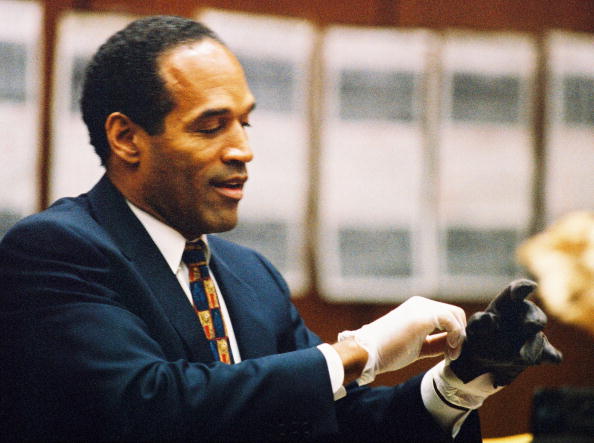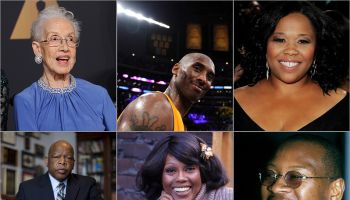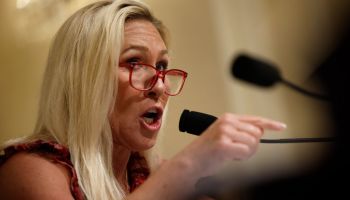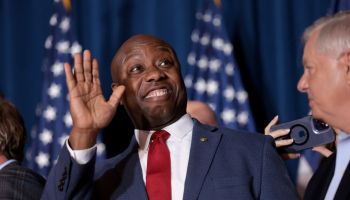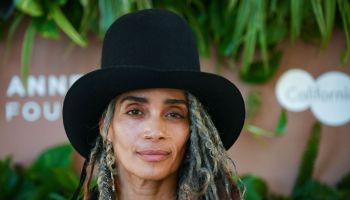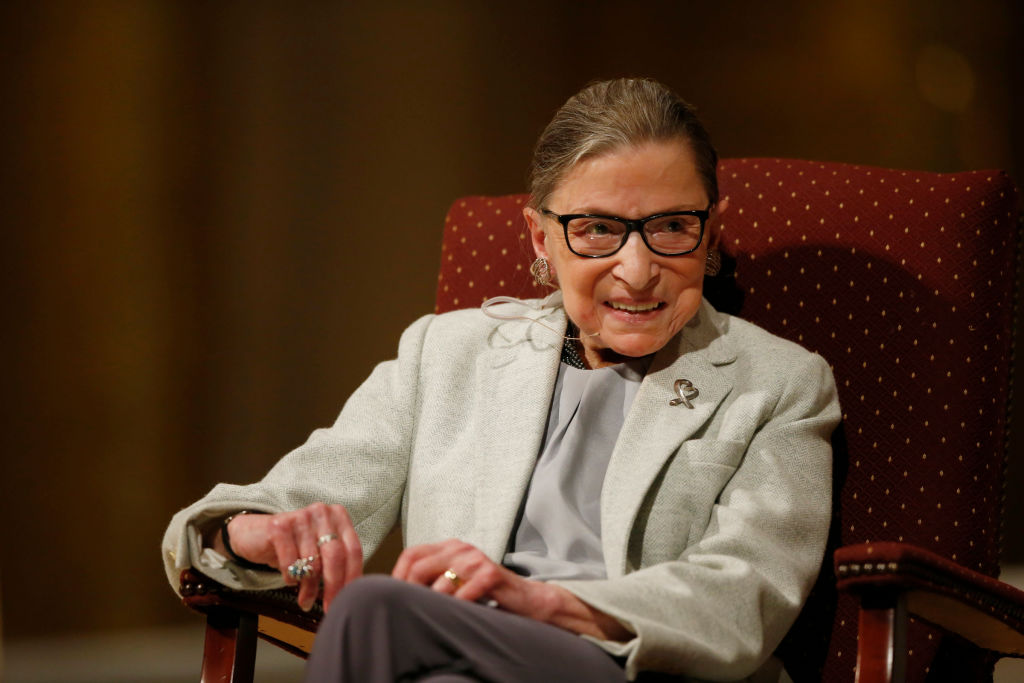
Source: MediaNews Group/The Mercury News via Getty Images / Getty
UPDATED: 2:30 p.m. ET, Oct. 14, 2021 —
Originally published: Sept. 18, 2020
Ruth Bader Ginsburg died more than a year ago, but a new report has revived criticism of her perception when it came to the topic of race.
The second woman to be a U.S. Supreme Court Justice died at the age of 87 on Sept. 18, 2020, following a years-long battle with metastatic pancreas cancer. But some of her words are coming back to haunt her legacy, thanks to journalist Katie Couric’s new memoir that further contextualizes what was already known about Ginsburg’s view on Colin Kaepernick‘s silent kneeling protest during the playing of the national anthem before NFL games.
Back in 2016, Ginsburg said the protest meant to bring awareness to police brutality disproportionately affecting Black people was “dumb.” That same year, she apparently expounded on that not-so-deep thought while speaking with Couric.
The justice, affectionately referred to as the Notorious RBG and remembered for being a reliably outspoken liberal voice on the bench and helping to shape the modern era of women’s rights, was quoted by Couric in “Going There” as saying that Kaepernick’s kneeling protest shows “contempt for a government that has made it possible for their parents and grandparents to live a decent life.”
Couric admitted in her memoir that she decided against including that quote in the news article she wrote at the time because she wanted to “protect” RBG. But all the revelation has done is renew attention to RBG’s legacy in the arena of racial and social justice, something that has been described in part as “mixed.”
For instance, Imani Gandy, senior editor of law and policy at Rewire News, told the New York Times following RBG’s death that labeling Ginsburg as “an out-of-touch white feminist is a real disservice.” However, Gandy also wrote for the Marshall project that she thought Ginsburg did fall short when it came to “more modern issues of racial justice including police brutality and Black Lives Matter.”
Gandy credited Ginsburg for recognizing Pauli Murray, the relatively unheralded Howard University-trained Black and queer lawyer whose pioneering legal arguments in the 1960s comparing gender discrimination and racial discrimination were credited with inspiring RBG to do the same. That appeared to be one of the first instances documenting Ginsburg’s relationship with Black America — or, at least a Black American. But it would be far from her last as she went on to an illustrious 27-year career as a United States Supreme Court Justice; a career that had its ups as well as its downs when it came to the topic of race.
The ‘Thurgood Marshall of gender equality law’
The NAACP mourned Ginsburg’s death and defended her as a fearless champion of equality.
“When President Bill Clinton nominated her to the Supreme Court,” NAACP President and CEO Derrick Johnson recalled in a press released Friday, “he called her the ‘Thurgood Marshall of gender equality law.'” Marshall was, of course, the first Black Supreme Court Justice.
Black law clerks. All two of them
But that high praise for Ginsburg infamously resulted in part with her having only had two Black clerks in total during her decades as a judge. That included one clerk during her 13 years on the D.C. Circuit Court — a duration where the National Review reminded its readers “she had never had a single black law clerk, intern, or secretary. Out of 57 employees, zero blacks.” That unfortunate trend continued after she became a Supreme Court Justice, when she “hired only one black clerk among the more than 100 clerks she has had.”
National Anthem protest controversy
As mentioned above, Ginsburg also raised quite a few eyebrows over her negative response to Kaepernick’s silent kneeling protest during the national anthem.
“I think it’s really dumb of them,” Ginsburg said in 2016 when asked for her thoughts on the protests before continuing later: “I think it’s dumb and disrespectful. … I think it’s a terrible thing to do, but I wouldn’t lock a person up for doing it. I would point out how ridiculous it seems to me to do such an act.”
Kaepernick, whose kneeling protest has been all but officially adapted by the entire NFL and its players this current season, said at the time that he was dismayed at her response.
“It is disappointing to hear a Supreme Court justice call a protest against injustices and oppression ‘stupid, dumb’ in reference to players doing that,” he said. “I was reading an article and it refers to white critique of Black protests and how they try to de-legitimize it by calling it ‘idiotic, dumb, stupid,’ things of that nature, so they can sidestep the real issue. As I was reading that I saw more and more truth how this has been approached by people in power, and white people in power in particular.”
She later backed away from her comments about the anthem protest.
“Barely aware of the incident or its purpose, my comments were inappropriately dismissive and harsh,” Ginsburg said in a prepared statement. “I should have declined to respond.”
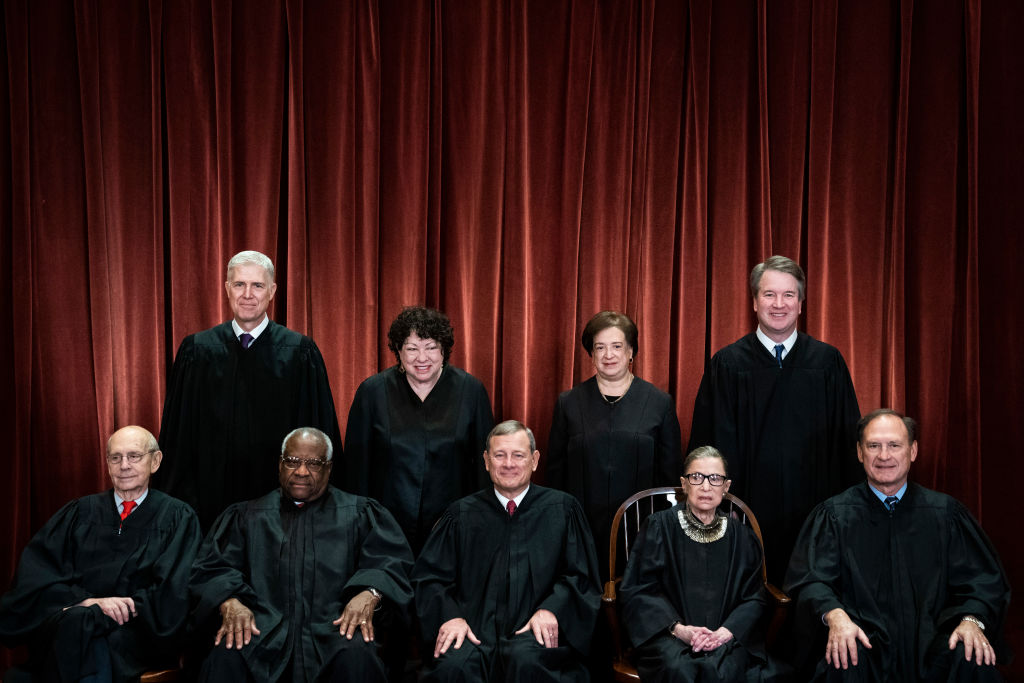
Source: The Washington Post / Getty
SCOTUS gutting the Voting Rights Act
RBG dissented vehemently as the conservative-led Supreme Court in 2013 struck down a key component of the Voting Rights Act (VRA), the historic law that in 1965 abolished restrictions on Black Americans voting in federal, state and local elections.
“The sad irony of today’s decision lies in its utter failure to grasp why the VRA has proven effective,” Ginsburg wrote in response. “The Court appears to believe that the VRA’s success in eliminating the specific devices extant in 1965 means that preclearance is no longer needed. “In the Court’s view, the very success of §5 of the Voting Rights Act demands its dormancy.”
She later lamented in her dissent: “Hubris is a fit word for today’s demolition of the VRA.” Ginsberg wrote.
Earlier that same year during oral arguments in Shelby County v. Holder — the challenge to the Voting Rights Act at the Supreme Court — Ginsburg lectured Shelby County attorney Bert W. Rein abut voter suppression and its effect on minorities.
“Mr. Rein, you keep emphasizing over and over again in your brief and you said it a couple of times this morning. Congress was well aware that [voter] registration was no longer the problem,” she said at the time. “This legislative record is replete with what they call second generation devices. Congress said up front: We know that the registration is fine. That is no longer the problem. But the discrimination continues in other forms.”
When discussing the case during an interview with MSNBC in 2015, she said: “We’ve come a long way from the days where there was state enforced segregation. But we still have a way to go.”
Vann Newkirk of the Atlantic put it another way in 2018: “voting became rapidly more difficult after the Shelby County decision, particularly for poor and elderly black people and Latinos.”
Birth control
In a 2014 interview, RBG prioritized and defended Black women when discussing poor women’s access to reproductive choice. She recalled a speech she was giving on the topic in the 1980s when she said a Black man commented, “We know what you lily-white women are all about. You want to kill black babies.”
“That’s how some in the African American community regarded the choice movement. So I think it would be helpful if civil rights groups homed in on the impact of the absence of choice on African American women. That would be useful,” she told the New Republic.
In the same interview, she also had more glowing words for Thurgood Marshall, whose advocacy for Black people has been compared to RBG’s work on behalf of women.
“He was my model as a lawyer,” she said before putting their legal existences into their proper perspectives: “The difference between Thurgood Marshall and me, most notably, is that my life was never in danger. His was. He would go to a Southern town to defend people, some of them falsely accused, and he literally didn’t know whether he would be alive at the end of the day. I never faced that kind of problem.”
Refusing to step down
Even though there were calls for Ginsburg to retire while President Barack Obama was in office — so he could name her successor — she was adamant about remaining on the bench.
“I will step down when I feel I can no longer do the job full steam,” she said in 2015.
SEE ALSO:
Who Will Be The Next Supreme Court Nominee? Another Issue Black Voters Must Stay On Top Of
5 Black Women For Biden And Sanders To Consider For Next Supreme Court Justice
